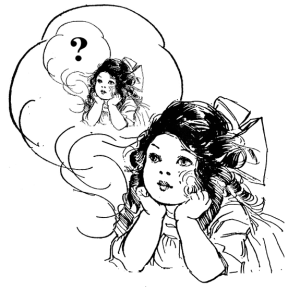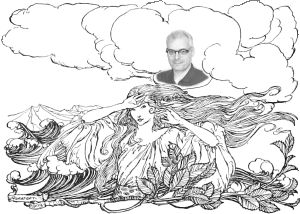 Maybe there’s a better strategy on consciousness? An early draft paper by David Chalmers suggests we turn from the Hard Problem (explaining why there is ‘something it is like’ to experience things) and address the Meta-Problem of why people think there is a Hard Problem; why we find the explanation of phenomenal experience problematic. While paper does make clear broadly what Chalmers’ own views are, it primarily seeks to map the territory, and does so in a way that is very useful.
Maybe there’s a better strategy on consciousness? An early draft paper by David Chalmers suggests we turn from the Hard Problem (explaining why there is ‘something it is like’ to experience things) and address the Meta-Problem of why people think there is a Hard Problem; why we find the explanation of phenomenal experience problematic. While paper does make clear broadly what Chalmers’ own views are, it primarily seeks to map the territory, and does so in a way that is very useful.
Why would we decide to focus on the Meta-Problem? For sceptics, who don’t believe in phenomenal experience or think that the apparent problems about it stem from mistakes and delusions, it’s a natural piece of tidying up. In fact, for sceptics why people think there’s a problem may well be the only thing that really needs explaining or is capable of explanation. But Chalmers is not a sceptic. Although he acknowledges the merits of the broad sceptical case about phenomenal consciousness which Keith Frankish has recently championed under the label of illusionism, he believes it is indeed real and problematic. He believes, however, that illuminating the Meta-Problem through a programme of thoughtful and empirical research might well help solve the Hard Problem itself, and is a matter of interest well beyond sceptical circles.
To put my cards on the table, I think he is over-optimistic, and seems to take too much comfort from the fact that there have to be physical and functional explanations for everything. It follows from that that there must indeed at least be physical and functional explanations for our reports of experience, our reports of the problem, and our dispositions to speak of phenomenal experience, qualia, etc. But it does not follow that there must be adequate and satisfying explanations.
Certainly physical and functional explanations alone would not be good enough to banish our worries about phenomenal experience. They would not make the itch go away. In fact, I would argue that they are not even adequate for issues to do with the ‘Easy Problem’, roughly the question of how consciousness allows us to produce intelligent and well-directed behaviour. We usually look for higher-level explanations even there; notably explanations with an element of teleology – ones that tell us what things are for or what they are supposed to do. Such explanations can normally be cashed out safely in non-teleological terms, such as strictly-worded evolutionary accounts; but that does not mean they are dispensable or not needed in order for us to understand properly.
How much more challenging things are when we come to Hard Problem issues, where a claim that they lie beyond physics is of the essence. Chalmer’s optimism is encapsulated in a sentence when he says…
Presumably there is at least a very close tie between the mechanisms that generate phenomenal reports and consciousness itself.
There’s your problem. Illusionists can be content with explanations that never touch on phenomenal consciousness because they don’t think it exists, but no explanation that does not connect with it will satisfy qualophiles. But how can you connect with a phenomenon explanatorily without diagnosing its nature? It really seems that for believers, we have to solve the Hard Problem first (or at least, simultaneously) because believers are constrained to say that the appearance of a problem arises from a real problem.
Logically, that is not quite the case; we could say that our dispositions to talk about phenomenal experience arise from merely material causes, but just happen to be truthful about a second world of phenomenal experience, or are truthful in light of a Leibnizian pre-established harmony. Some qualophiles are similarly prepared to say that their utterances about qualia are not caused by qualia, so that position might seem appealing in some quarters. To me the harmonised second world seems hopelessly redundant, and that is why something like illusionism is, at the end of the day, the only game in town.
I should make it clear that Chalmers by no means neglects the question of what sort of explanation will do; in fact he provides a rich and characteristically thorough discussion. It’s more that in my opinion, he just doesn’t know when he’s beaten, which to be fair may be an outlook essential to the conduct of philosophy.
I say that something like illusionism seems to be the only game in town, though I don’t quite call myself an illusionist. There’s a presentational difficulty for me because I think the reality of experience, in an appropriate sense, is the nub of the matter. But you could situate my view as the form of illusionism which says the appearance of ineffable phenomenal experience arises from the mistaken assumption that particular real experiences should be within the explanatory scope of general physical theory.
I won’t attempt to summarise the whole of Chalmers’ discussion, which is detailed and illuminating; although I think he is doomed to disappointment, the project he proposes might well yield good new insights; it’s often been the case that false philosophical positions were more fecund than true ones.

 Consciousness – it’s all been a terrible mistake. In a really cracking issue of the
Consciousness – it’s all been a terrible mistake. In a really cracking issue of the